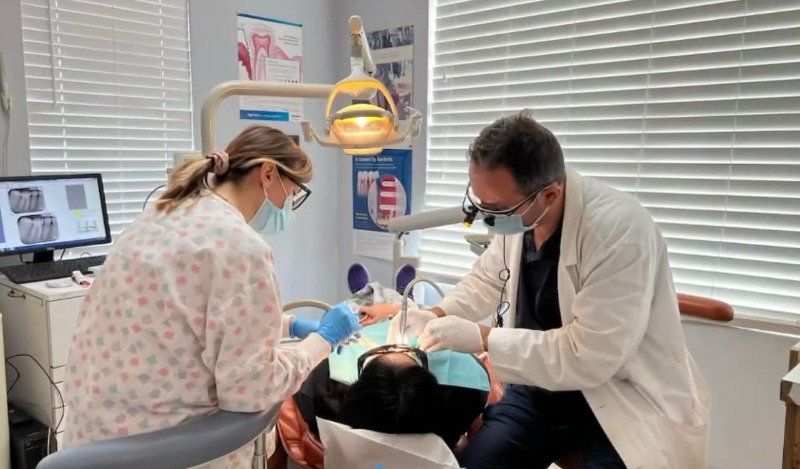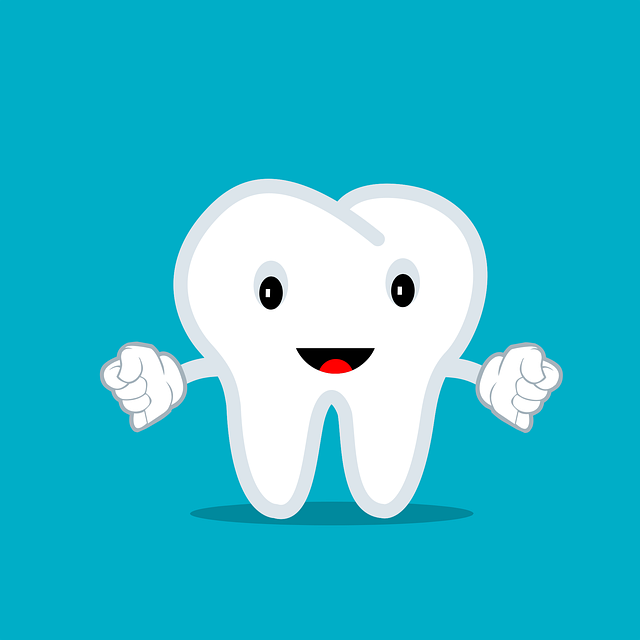5 Ways to Get Rid of Numbness After a Dental Work

If you experience persistent numbness even after 5 hours of following a dental implant, wisdom tooth extraction, or filling, get in touch with your dentist immediately. When you visit a dentist for these, the dentist often gives local anesthesia to freeze the area and stop you from feeling pain during your treatment A follow-up visit may be obligatory as lack of sensation for a long time after an oral procedure could signify nerve damage.
Generally speaking, the anesthesia your dentist uses will numb the tooth for 1 to 2 hours. Besides your lips, face, and tongue may remain insensitive for additional 3-4 hours. Now, this can be frustrating if you’re attempting to return to normal activities right after your appointment.
5 Ways to Get Rid of Numbness After a Dental Work: Best Dentist Burbank
If you're wondering how to make numbness go away after dental work, there are a few simple steps you can take to speed up the process. Try gently massaging the area, moving around to boost circulation, or applying a warm compress to the numb spot to increase blood flow. Staying hydrated also helps, and it's wise to avoid eating until the numbness wears off to prevent accidental bites. If the sensation doesn't return after several hours, consider reaching out to your dentist for advice. Here is our tips to get rid of numbness after a dental procedure with details:
1. Be Energetic
Ask your dentist if it’s harmless to take part in physical activity subsequent to your dental procedure. Going for a bike ride, taking a brisk walk, or even tackling a few chores around the house will help to cut the lack of sensation in a natural way. Being lively rouses blood flow in the body. This accordingly, helps to carry the anesthesia away from the injection spot. The encouraging progress will allow your body to metabolize the novocaine that was used during your treatment.
2. Massage Your Skin
If no puffiness is there, apply a warm compress to help raise blood flow to the affected area. Additionally, using a warm compress, massage your lips to warm them, and boost blood flow. Keep away from touching the treatment area, and don’t forget to wash your hands before and after massaging your mouth, lips, and face.
3. Take a Nap

Though taking a nap is the reverse of being lively, falling asleep can help to get your mind to forget the fact certain areas of your mouth and face are insensitive. Sit back, unwind, and let the numbing sensation outdo you until the sensation wears off calmly.
4. Ask For a Further Injection
Some dentists use medicine that can overturn the effects of general anesthesia. Though this will mean an additional injection, a second reversal injection can also help to make the deadness fritter away twice as fast as just waiting it out.
5. Have Patience
Since different types of dental procedures necessitate different amounts of anesthesia, it is something like a one-size-fits-all. Hence, there is no set answer for how long your mouth will stay frozen after dental work. Moreover, other factors come into play as to how long the freezing sensation will last, for example, your height, weight, and how quickly your body can metabolize the anesthesia.
How Long Does Numbness Last After a Dental Filling?
After getting a dental filling, it's common to experience numbness in the affected area due to the local anesthetic used during the procedure. The question "how long does numbness last after filling" is quite common, and the answer varies depending on factors such as the type of anesthetic used, the location of the filling, and individual differences in metabolism. When you get a dental filling, your dentist typically administers a local anesthetic to numb the area being treated. This numbness can last anywhere from 2 to 4 hours, depending on several factors:
- Type of Anesthetic: Different types of anesthetics can have varying durations of effectiveness. Some may wear off more quickly, while others are designed to last longer.
- Amount of Anesthetic: The amount of anesthetic used can also influence how long the numbness lasts. If a larger dose is administered, the numbness might persist for a longer period.
- Your Metabolism: Each person’s body metabolizes the anesthetic at a different rate. People with a faster metabolism may find that the numbness wears off more quickly, while others might experience it for a longer time.
It's important to be cautious during this time to avoid accidentally biting your cheek, tongue, or lips. If numbness persists beyond the expected timeframe, or if you have any concerns, it's best to contact your dentist for further guidance.
How long does it take for the numbness to go away after a filling?
To help the numbness go away after a dental procedure, such as a filling, you can gently massage the area, stay active, use a warm compress, and drink plenty of water to boost circulation. However, the most effective remedy is simply to wait. So, how long does it take for the numbness to go away after a filling? Typically, it takes a few hours, usually between one to five hours, depending on the anesthetic used. If it lasts longer than expected, it's best to consult your dentist.
Burbank Dental Procedure: Follow-Up Dental Appointment
While local anesthesia used during a dental procedure can lead to lip deadness for two or three hours, a long-lasting lack of sensation could point to a complication. If, even after five hours, you feel continual numbness after some dental procedures contact your dentist.
Concerned about numbness caused by local anesthesia? Call us today at 8185782332 at My Dentist Burbank to book an appointment with Dr. Sahakyan, your trusted dentist in Burbank. Our team of experts would be happy to help you. Oral numbness that occurs due to local anesthesia is common. Don’t panic! Fortunately, our dentists are equipped with strong numbing solvents to keep the appointments as painless as feasible.
FAQs
The numbing effect from a dental filling typically lasts between 1 to 3 hours. This can vary depending on the type of anesthesia used and individual differences in how your body processes it.
Numbness after a cavity filling generally lasts 1 to 3 hours, similar to other types of dental fillings. If numbness continues beyond this timeframe, it’s best to consult with your dentist.
If the numbness persists for more than 4 hours, it could indicate a problem such as an adverse reaction to the anesthesia, nerve irritation, or a complication from the procedure. You should contact your dentist to assess the situation and address any potential issues.


